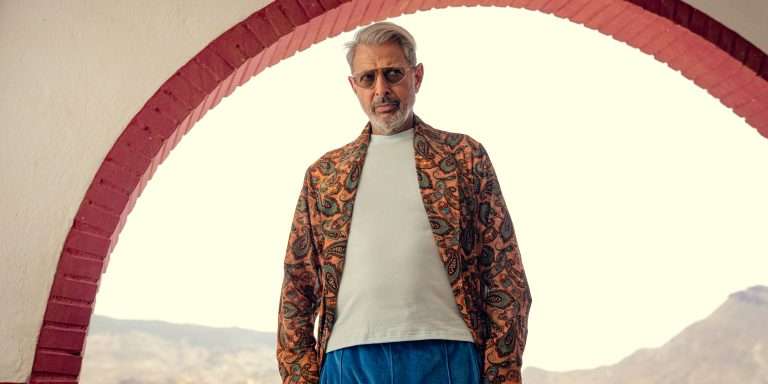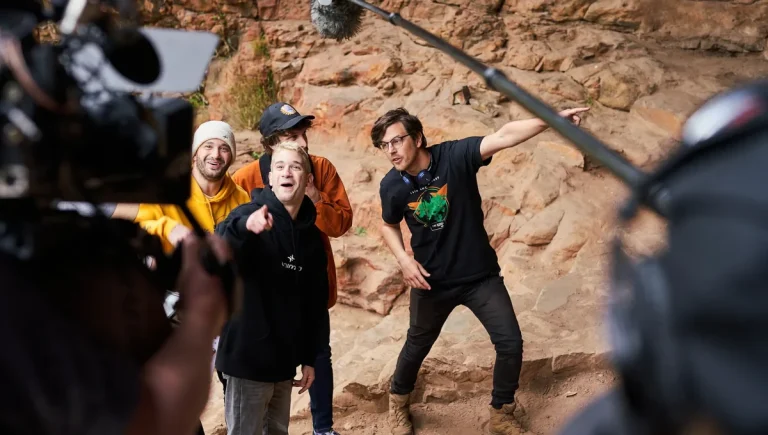During our school days, most of us saw history as one of the most boring subjects of all time. The reason for that can primarily be chalked up to the way history is taught. It’s boiled down to names, places, dates, and a few iconic quotes. Whereas it should be treated as a collection of cautionary tales that must be burned into our skulls so that we do not repeat the same mistakes the previous generations committed. Thankfully, where our history teachers failed, movies like State Funeral (2019), Jojo Rabbit (2019), The Courier (2021), Wife of a Spy (2021), Sardar Udham (2021), and even to a certain extent Bad Luck Banging or Loony Porn (2021) succeeded in sending a message about opposing fascism and the regressive cultural reforms that come with it. And Netflix’s Munich – The Edge of War (2022) is yet another reminder to do the same.
Based on the novel by Robert Harris, Munich: The Edge of War is directed by Christian Schwochow and written by Ben Power. The movie opens in the early 1930s with a graduation party where Hugh Legat (George MacKay), Paul von Hartmann (Jannis Niewöhner), and Leny (Liv Lisa Fries) are jokingly arguing about moving to Germany because Paul believes that it’s the place to be to define humanity’s future.
The narrative then cuts to the late 1930s with Legat working as PM Neville Chamberlain’s (Jeremy Irons) secretary, Hartmann working for the German government, and Adolf Hitler (Ulrich Matthes) on his way to take over the Sudetenland region of Czechoslovakia. While Britain, France, and Italy decide to allow Hitler to invade Czechoslovakia by signing the Munich Agreement, thereby averting a bigger war, Hartmann tries to stop the signing after receiving proof that the invasion is only one part of Hitler’s xenophobic plans.
![Munich - The Edge of War [2022]](https://79468c92.delivery.rocketcdn.me/wp-content/uploads/2022/01/Munich-The-Edge-of-War-2022-1024x576.jpeg)
Now, let’s make a couple of things clear. Since Hitler became who he became, PM Chamberlain, is largely seen as the man who was fooled by Hitler. Harris’s novel paints Chamberlain as a tragic hero. Hence, so does the movie. Whether or not that hampers or elevates your viewing experience, especially when you have the knowledge of what Hitler did, is completely up to you. Hartmann and Legat are fictional, as confirmed by Harris (via The Guardian), and inspired by the diplomat Adam von Trott zu Solz and the scholar A. L. Rowse. Trott went on to join Claus von Stauffenberg’s 1944 plot to assassinate Hitler. It failed and Trott was executed. Whether or not you think that the fictionalising of these very real events improves or ruins your viewing experience is up to you.
But viewing Munich: The Edge of War in an India (which is no longer a democracy but an electoral autocracy) where the majority Hindu community is constantly hating on minorities, especially Muslims, on the ground and harassing those online, is unnerving! Especially when it focuses on the radicalisation of Hartmann and many other educated individuals like him in the name of nationalism.
Through Hartmann’s efforts to stop Hitler, the movie even shows that by the time your education and rationality kick back in, and you begin to realise that your decision to support fascism was wrong, it’s going to be too late. And that’s when the historical accuracies or inaccuracies actually fade into the background and the parallels with your real-life become clear. That’s when you begin to understand that Harris, Schwochow, and Power don’t just want to revisit the events of the Munich Agreement and portray Chamberlain as a hero, but also reiterate the fact that communally-charged politics never ends well.
Also, Read: 10 Films to Watch if you love Dunkirk
To be honest, unless you are a major history nerd, you will find the diplomatic deals and conversations in the German and the British governments to be a tad bit boring. From a layman’s perspective, you can even say that Power’s writing and Schwochow’s direction fail to make those aspects accessible. But you’ll have no problem latching onto Hartmann and Legat’s relationship. You genuinely feel the changes they go through, both in isolation and together, because you and your friends are undergoing the same process right now.
The betrayal, the angst, the camaraderie, and the concern feel very real. So, kudos to Power and Schwochow for that. And of course, kudos to MacKay and Niewöhner for aptly portraying all that with their acting chops. Talking about acting, everyone from Irons to Matthes, Sandra Hüller, Fries, Diehl (who has evidently dominated the market of movies set in Nazi Germany), Jessica Brown Findlay, Anjli Mohindra, Mark Lewis Jones, and Alex Jennings are fantastic. However, it’s true that MacKay and Niewöhner steal the show by a huge margin.
Coming to some of the technical aspects, the music by Isobel Waller-Bridge is pretty anxiety-inducing. The production design by Tim Pannen is impeccable. The costume design by Frauke Firl is excellent as well. It’s almost ritualistic in nature to find out that a history film that you liked had a bunch of incorrect symbols or cars or clothes. But to the untrained eye, yes, it’s all fine.
The cinematography by Frank Lamm is undeniably great. Every frame is lit to perfection. The camerawork is dynamic and kinetic. And it’s clear that Lamm did a lot of coverage (which means shooting from more positions than will be used in the final film, allowing the editor and the director to choose shots during the editing process) while filming. However, editor Jens Klüber actually butchers all that work by cutting scenes in a jarring manner. You don’t have to watch the entire movie to figure that out. It’s apparent in the opening party sequence itself as Klüber keeps cutting to unnecessary shots that last for seconds and harm the flow of the scene. How or why does Schwochow approve that kind of editing? We’ll never know.
At the risk of sounding repetitive, Munich – The Edge of War is a heavily fictionalised version of an important piece of world history with a cautionary message for countries that are slowly accepting fascism. It comes highly recommended because, as mentioned before, we are witnessing the dehumanisation of minorities and the crumbling of the pillars of democracy in India on a daily basis. This movie (coupled with a reading of the human toll that came with WWII) has all the ingredients to help you understand the downsides of radicalisation. It feels bizarre to type that because everyone should know that radicalisation has no upsides. But since we are so neck-deep in a culture of bigotry and hate which is then being normalised by the ruling government that maybe everyone doesn’t know that that’s wrong. And watching this film will result in an awakening. Munich – The Edge of War will stream on Netflix from January 21, 2022.




![Scarred Hearts [2017]: Shenanigans of a Profound Soul](https://79468c92.delivery.rocketcdn.me/wp-content/uploads/2017/09/Scarred-Hearts-768x512.jpg)
![Diane [2019] Review: A carefully observed character drama of a woman who understands need](https://79468c92.delivery.rocketcdn.me/wp-content/uploads/2019/04/Diane_HOF2-768x433.jpeg)
